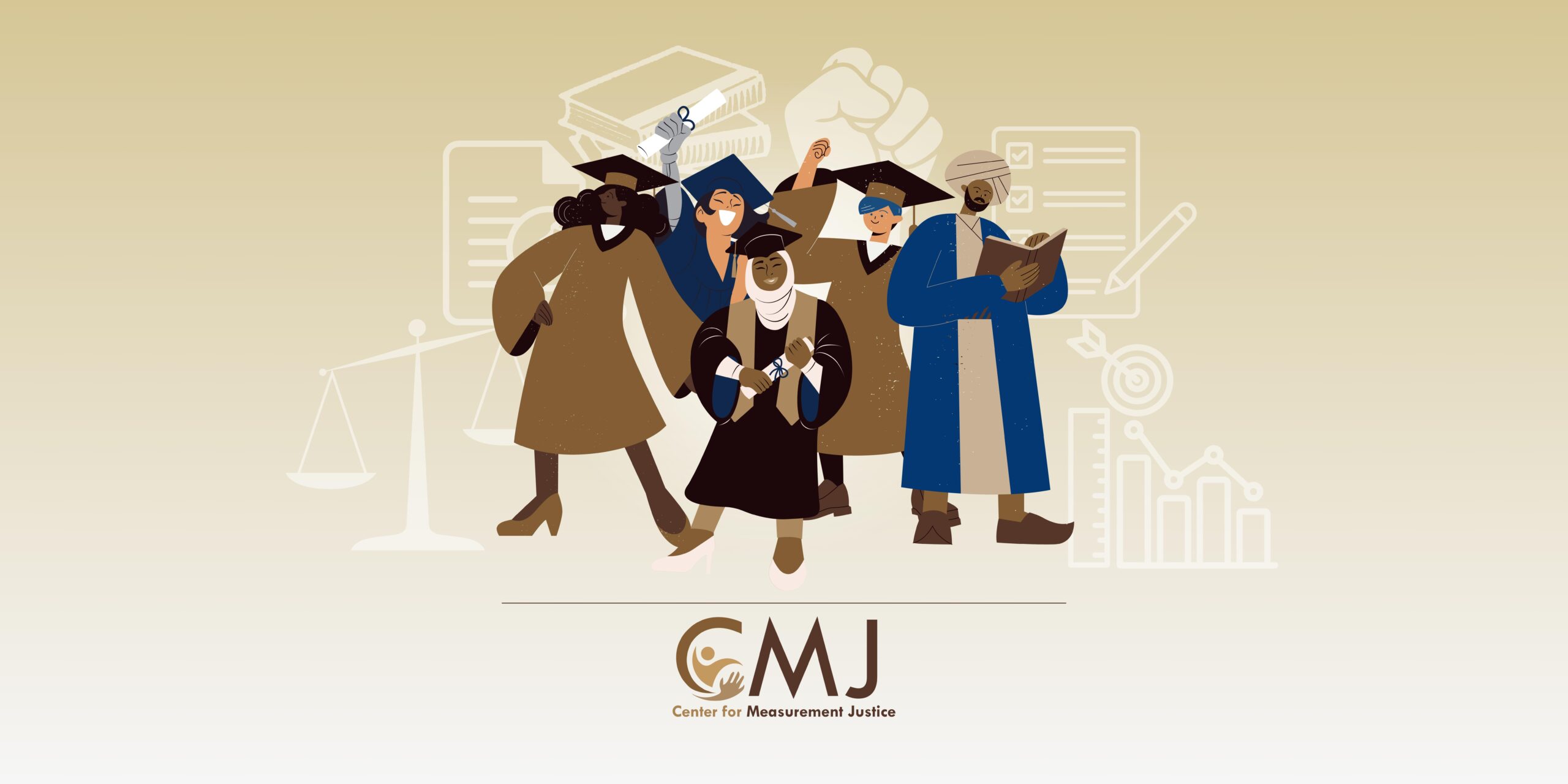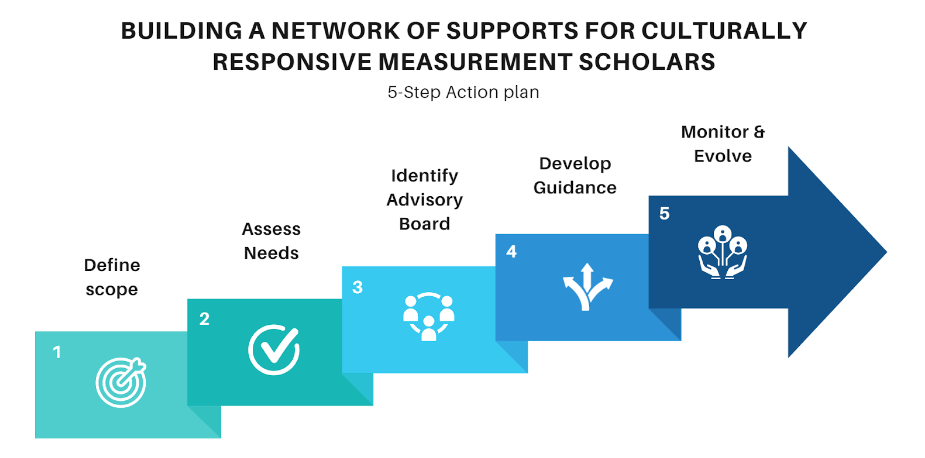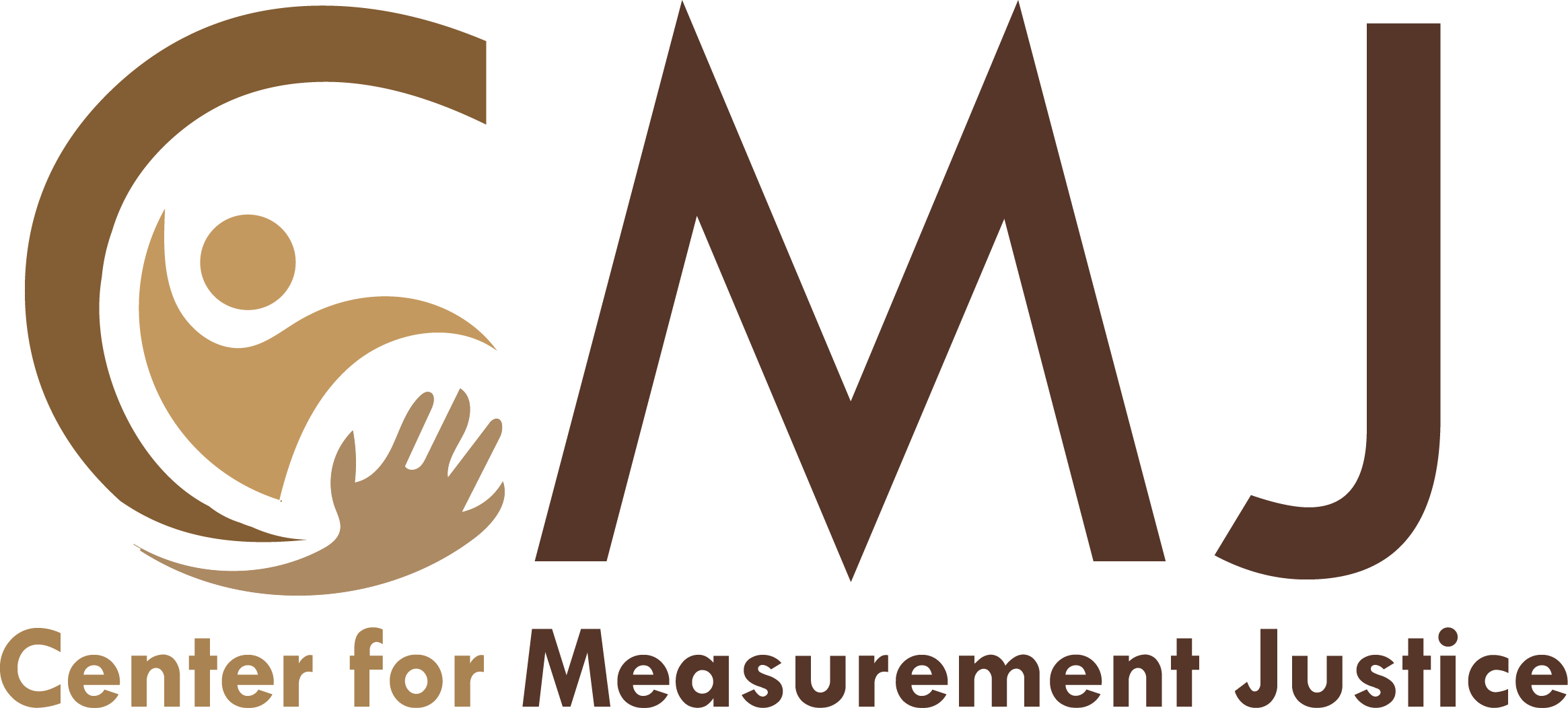
April 9th, 2024
Welcome to the third installment of our blog series on a collaborative effort organized with Digital Promise and the Center for Culturally Responsive Evaluation and Assessment (CREA). We hosted a Convening at the Seventh International CREA 2023 conference last fall that generated collaborative action plans to help prepare a new generation of assessment professionals who center cultural responsiveness in their work (see our first and second posts here).
In this blog post, we’re thrilled to share the progress and insights of one of our action plan groups, developed by Thao T. Vo & Brian F. French from the College of Education at the Washington State University, which discusses their efforts nurturing mentorship networks in the field of measurement.
By Thao T. Vo and Brian F. French.
Key Ideas:
- We recognize the importance of quality mentoring, particularly in areas such as cultural responsiveness in assessment.
- We are conceptualizing a mentorship network for early career assessment professionals interested in centering culturally responsive practices.
- We are paying close attention to sustainability and recruiting mentors committed to supporting the next generation of educational measurement scholars who focus on culturally responsive practices.
The focus of educational measurement research training has historically been on developing technical, statistical, and computation skills. These skills are undoubtedly important. However, this narrow focus can create barriers for scholars who want to grow skills around cultural responsiveness. Mentorship – in different forms – remains a salient influence in personal and professional growth in graduate training across educational measurement programs, especially for marginalized learners. Mentoring is essential to academic success for minoritized students, especially regarding feelings of community, value, and inclusion in a profession that has historically contributed to their marginalization (e.g., “color-neutral” constructs and standardized testing). However, many professionals may not have had the training and mentorship that have prepared them for aspects of their careers that are outside the scope of what we are trained to do (e.g., applied research, teaching, mentoring). In response to this barrier, we are developing a mentorship network for graduate students, early career scholars, and seasoned professionals who aspire to center cultural responsiveness in their work in the educational measurement profession.
Building a mentorship network early in one’s career may alleviate issues at later career time points for the individuals and assist with the retention of professionals in the field of educational measurement.
Progress on Action Plan
We envision a mentorship network that cascades into their professional lives and empowers learners. Mentor committees are established at many levels (e.g., for leaders and faculty). We want to place more effort at the graduate student level to build consistency in an individual’s career trajectory with quality mentorship. This is mentorship that is broadly defined (e.g., mentor network vs. one mentor). We are grateful for the Center for Culturally Responsive Evaluation and Assessment (CREA) Assessment Convening that held us accountable for moving our action plan forward. Since the convening in October 2023, we have developed a five-step action plan, depicted below.

We have outlined the scope of the mentorship network, identified broad mentoring domains, and reviewed existing mentor frameworks (e.g., CMJ’s mentorship program). We are currently on Step 2 of our action plan to build a survey that captures the specific needs of graduate students (e.g., curriculum, research opportunities) and professionals (e.g., level of commitment, incentives) involved in such work. This will inform Step 3, which is building a committee or advisory board to focus our efforts on certain mentor domains, and Step 4, which outlines guidance on how to access the mentorship network. Our goal is to have a network in place by the Fall of 2024. Our aspiration is to cultivate and sustain a support network committed to a more diverse, inclusive, and culturally responsive educational measurement profession.
The Challenge of Sustainability
One major challenge is understanding what other mentor networks do well and where opportunities reside for us to complement and strengthen what our field has to offer. A second challenge is the identification of resources to develop a sustainable network. Questions we are asking ourselves are, “Who will be responsible for maintaining this network? How can we encourage long-term participation and collaboration? What metrics can we use to gather information about the efficacy of the mentorship network?” And “How do we recognize the service of mentorship, which is traditionally “unseen” work in institutions”? We recognize the additional responsibilities this work would require of mentors. Therefore, we want to recognize mentorship as a skill that is explicitly rewarded (e.g., incentives) and professionally recognized (e.g., counted as service in tenure and promotion evaluations).
Near-term Plans: Partnering and Recruiting for the Future
Our plan is three-fold for the next 6 months. First, we will continue our action steps and adjust as we learn more. Second, we will focus on the development of partnerships with others who provide similar mentorship support, such as the American Educational Research Association (AERA) Division D (Measurement and Research Methodologies) Mentoring program and the National Council on Measurement in Education (NCME) NCMEntoring program. Third, perhaps most importantly, we are recruiting mentors committed to supporting the next generation of educational measurement scholars who focus on culturally responsive practices. We welcome partners in this work and invite our colleagues to connect with us through this Interest Form.
We invite your input and ideas for further discussion as we continue this journey. Stay tuned for our next post in May.
Author Bios:
Thao Vo is a Doctoral Candidate studying Educational Psychology at Washington State University. thao.vo@wsu.edu
Brian French is a Regents Professor and Director of the Learning and Performance Research Center at Washington State University. frenchb@wsu.edu
Stay Connected:
Follow our journey through our organizational websites and mailing lists:
Digital Promise (https://digitalpromise.org/)
Center for Measurement Justice (https://measurementjustice.org/)
Center for Culturally Responsive Evaluation and Assessment (https://crea.education.illinois.edu/)
